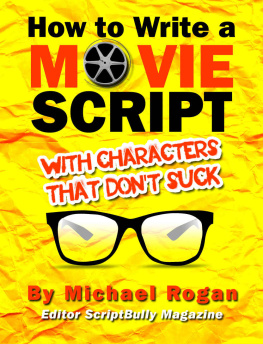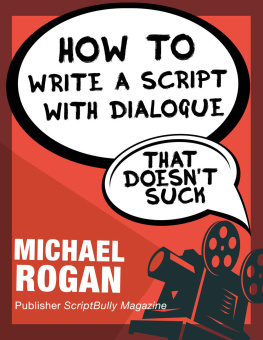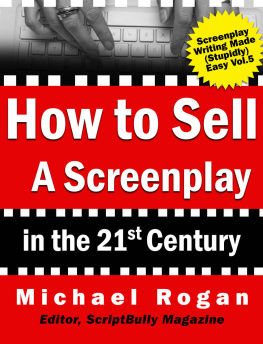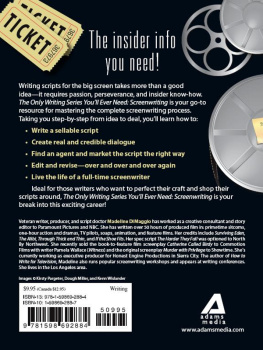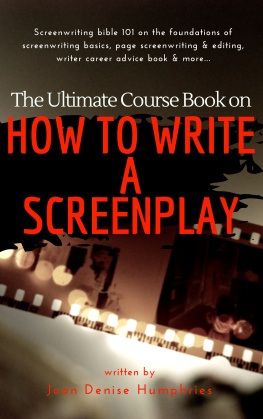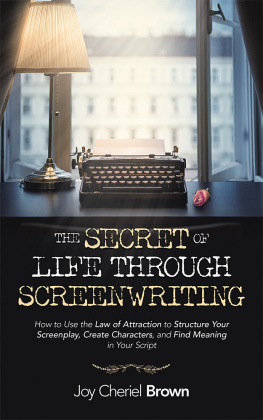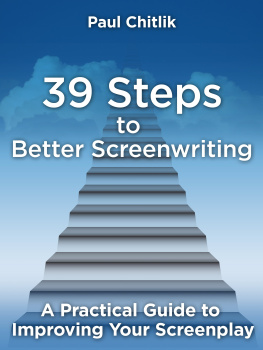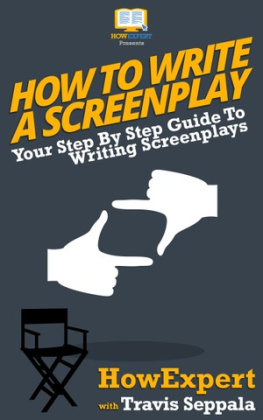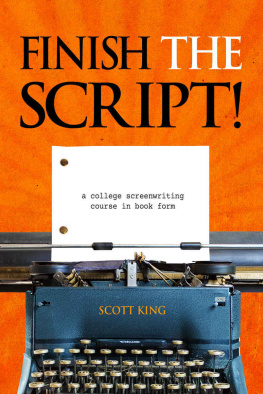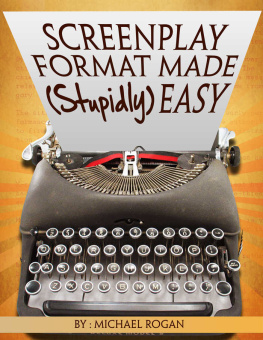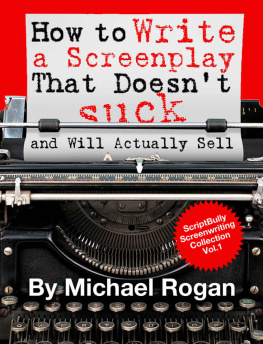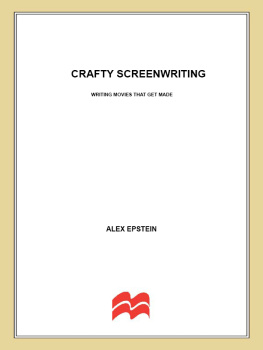The one with the amazing visuals, magnificent costumes, soaring musical score, witty dialogue, fabulous ending...
...And boring, unoriginal characters who don't change or overcome adversity or have an obsessive view of life.
Yeah, me neither.
Because characters aren't just a PART of the story.
They're the way an audience CONNECTS to your story. They're the bait we use to attract Hollywood talent to read our scripts.
They're the cultural icons and aspirational symbols that define - sometimes even alter - a generation.
And they're what many newbie screenwriters screw up.
* * *
Youre Gonna Need a Bigger Boat
It's not their fault.
As my old film professor used to say: Trouble with screenwriters is they read too many goddamn screenwriting books.
There are over 1,400 published books on screenwriting at Amazon.com. (This tome you're reading, I'm embarrassed to admit, is one of MANY.)
And while many make for a fine addition to your reading library, most of them have one fatal flaw.
Theyve all got a chapter titled something like:
- Fleshing Out Your Character
- Creating the Three-Dimensional Hero
- Going Inside the Underbelly of Your Villain
And guess what? It's ALWAYS the shortest chapter in the book. And it usually includes some telemarketer phone survey asking you to nail down things such as your characters:
- Height
- Weight
- Skin color
- Political affiliation
- Favorite Beatle
- That one traumatic childhood memory at the mall that explains everything and that can be revealed in a heartfelt scene in the middle of Act-II.
Then as quickly as the author can, they move on to safer ground.
Such as Cracking the Act-Two Midpoint,Developing the Through Line or Plotting Your Five-Act Story Matrix Framework System Thing-y
Because creating interesting, realistic characters isHARD.
Its part-witchcraft, part-thermodynamics, with a dash of brain surgery thrown in for good measure. (And knowing a characters hair color or what's in their CD player or how they did in their eighth-grade English class wont help.)
Character is about the choices a person makes when they are under pressure.
Do I choose to be with the woman I love or sacrifice that love for the good of the French Resistance? (Casablanca)
Do I stick to my convictions and stand up to the King of England even though it may cost me my life? (A Man for All Seasons)
Do I do the unthinkable - cutting off my own hand with a pocketknife - or do I give up and die in the desert? (127 Hours)
You don't SHOW character. You REVEAL it! By putting your characters in some serious frickin' jams.
Knowing which jams will elicit the strongest reaction in your characters, and digging so deep inside your characters you see things through their eyes, is what this book is about.
* * *
Roads? Where Were Going We Dont Need Roads
As somebody who has put in time as both a script reader and working-class film scribe, I know how hard the craft of character creation can be.
That's why I think its important to put my screenwriting money where my mouth is.
So, after each of the chapters in this book, I've given you some exercises to complete. Dont worry theyre short and not entirely painful. And to show you I'm not a total sadist, I've included my own feeble attempts to complete the exercises.
Not all the results are amazing some of them royally suck - but I think it's good to see somebody else struggle with the act of character creation.
And writers who learn to enjoy struggling with their characters until they get it JUST right, usually make enough to buy mansions in the Hollywood Hills.
Solets get to work on making you that down payment.
1
4 Steps to Kick-Ass Movie Character Awesomeness
A bove all, be the heroine of your life, not the victim.
-Nora Ephron
Theres a Hollywood legend not sure how true it is - that when Jane Fonda was a huge bankable star (back in the Mesozoic era), she had ONE condition for choosing her roles:
She would take the script and thumb through it not read it, mind you and if she saw less than three monologues for her character, she said no to the project.
If only us writers could be so self-centered.
* * *
"I'm Out of Order? You're Out of Order!"
Actors CAN spend months worrying about every syllable their character utters. (I had a theatre-major roommate who once refused to bathe for a month during a production of Grapes of Wrath. Yeah, that was fun.)
But as the creator of the world your screenplay inhabits, you cant just let mildly fascinating characters run around saying half-clever things. (Otherwise youre writing an Edward Burns film.)
Your characters must serve a purpose.
And thats making sure your MAIN CHARACTER is pushed to the limits of HOW they see the world.
To ensure theyre faced with the biggest, gnarliest, most kick-ass dilemma possible
and then forced to ask themselves a question:
- Do I live life the way Ive been doing up to this point?
- Or do I embrace this scary, new (possibly wonderful) way of life? (Even if it means giving up a crucial part of my identity.)
And this dilemma between two equally difficult choices IS your story.
Sounds heavy, dont it?
Its the most liberating thing you can do for your writing.
* * *
Excuse Me, Stewardess, I Speak Jive
There are basically three different types of characters you'll be creating as you write your screenplay:
- Heroes/Main Characters/Protagonists These are the roles that attract highly paid, self-obsessed actors who drive limited-edition sports cars.
- Villains/Antagonists These are the roles that help character actors win Oscars and support their career in the theatre.
- Supporting Characters Everybody else: this includes best friends, mentors, evil henchmen, scarecrows, cowardly lions, emo vampires, etc.
Many screenwriting books suggest organizing your characters by mythic archetypes, such as the magician or the trickster or the vanguard (whatever the hell a vanguard is?).

